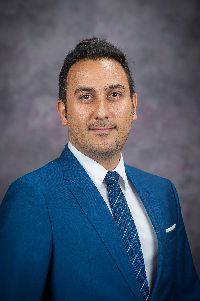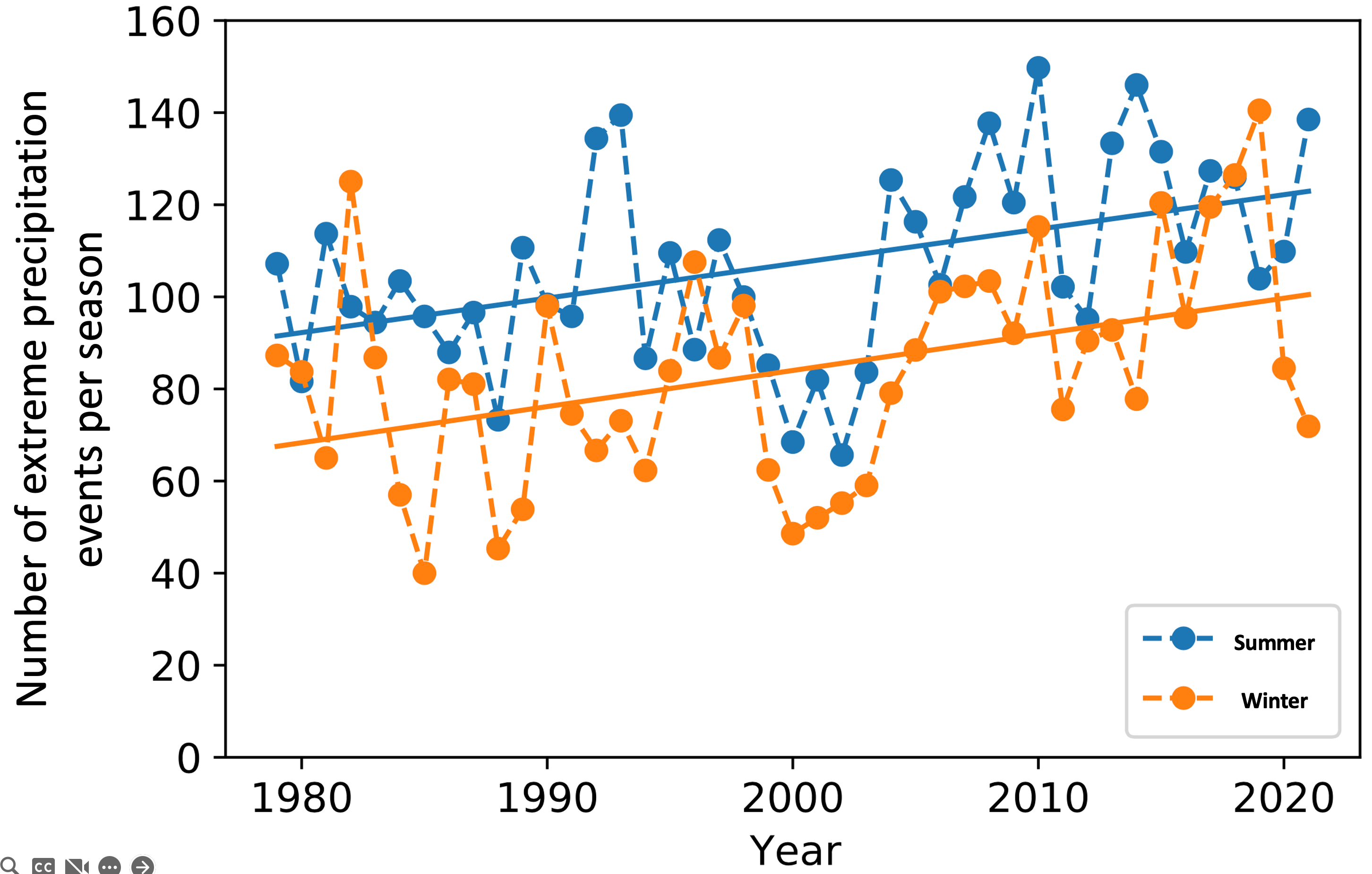
November 6, 2023
Email office@phys.ksu.edu for the Zoom address
Abstract
 Water scarcity is a potentially catastrophic global grand challenge, and in the United States a recurring and increasingly prevalent national security, infrastructure, and economic concern. Evidence indicates that traditional methods of assessing watershed and hydrologic systems are not keeping pace with the realities of climate change and extreme events. The main objective of this talk is to test the broad hypothesis that the networks of hydrologic and climatic data i.e., precipitation and temperature are interconnected, and their interdependencies as well as their nonlinear complex interactions can be characterized within the complex network theory framework at the national scale. For this purpose, complex networks of precipitation and temperature were constructed. For network analysis, we determined several properties, such as degree centrality, partial degree, and mean geographic distance. Generally speaking, we found that the number of extreme precipitation and temperature events has been increasing over the past three decades. We also found hubs in the US with local connections and teleconnections. Results based on the community detection analysis showed several communities for the precipitation and temperature data.
Water scarcity is a potentially catastrophic global grand challenge, and in the United States a recurring and increasingly prevalent national security, infrastructure, and economic concern. Evidence indicates that traditional methods of assessing watershed and hydrologic systems are not keeping pace with the realities of climate change and extreme events. The main objective of this talk is to test the broad hypothesis that the networks of hydrologic and climatic data i.e., precipitation and temperature are interconnected, and their interdependencies as well as their nonlinear complex interactions can be characterized within the complex network theory framework at the national scale. For this purpose, complex networks of precipitation and temperature were constructed. For network analysis, we determined several properties, such as degree centrality, partial degree, and mean geographic distance. Generally speaking, we found that the number of extreme precipitation and temperature events has been increasing over the past three decades. We also found hubs in the US with local connections and teleconnections. Results based on the community detection analysis showed several communities for the precipitation and temperature data.
Bio
Behzad Ghanbarian is an Associate Professor of multidisciplinary research at, Geology Department, Kansas State University. Before his current position, he worked as a postdoc research fellow at University of Texas at Austin, for 2.5 years. Behzad also worked as a reservoir engineer at the Bureau of Economic Geology, Austin, Texas. He is the author of 95 peer-reviewed journal articles and two books. His research interests center around a wide range of multidisciplinary topics, such as climate change, unconventional reservoirs, upscaling techniques, and fluid flow and contaminant transport in heterogeneous porous media. He is a member of AGU, SSSA, and SPE and received the 2015 Donald L. Turcotte Award in nonlinear geophysics from the American Geophysical Union as well as the 2020 Soil Physics and Hydrology Division Early Career Award from the Soil Science Society of America. Based on a study led by Stanford University, he was listed among the top 2% of scientists in the world in 2021 and 2022. Behzad also received the TWISS Graduate Teaching and Mentoring Award from Kansas State University in 2021 and 2022.